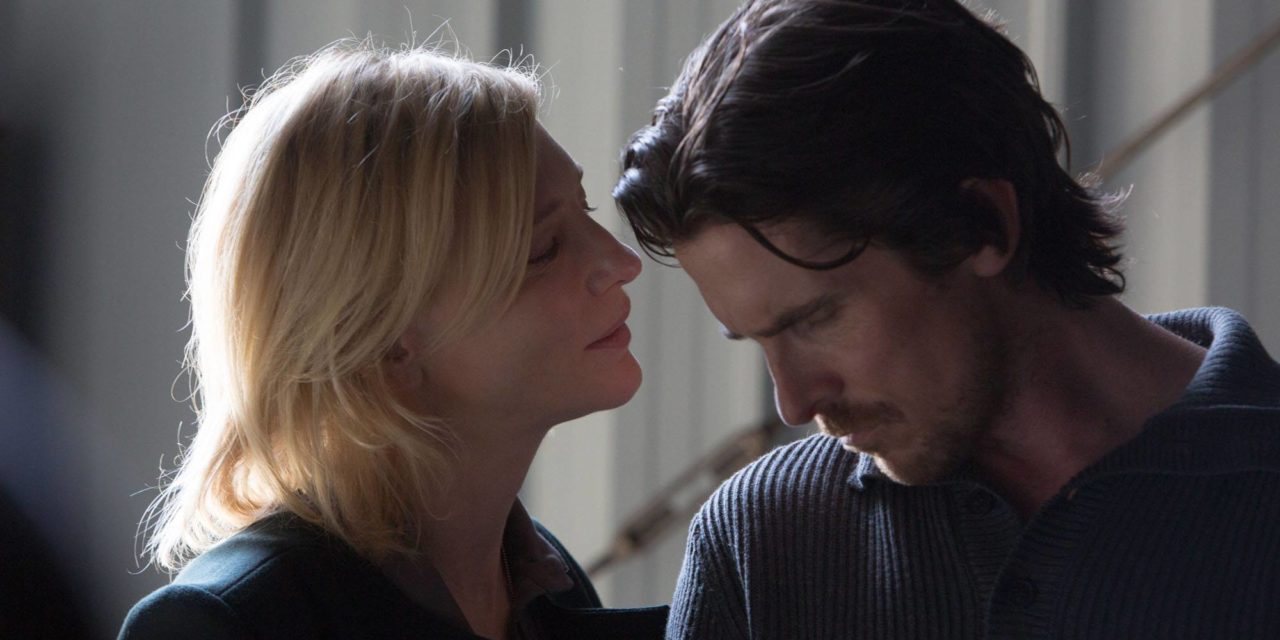I never thought Entourage would be one of the most apt comparisons for a Terrence Malick film, but it’s 2016 and Donald Trump is one unfortunate day of turnout away from the White House, so here we are.
A cinematic poet of the natural world, no one is able to make archetypes and haunting images speak so deeply and naturally to the human experience and our connection to the world around us quite like Malick. With The Tree of Life (non-controversially) and To the Wonder (somewhat more controversially) both seemingly the peak of his natural poetics, it seems only natural that his next film find another world to speak of.
So why not move to the most unnatural place in the world, Los Angeles, and see what someone like Malick can find within it?
The answer is, unfortunately, not all that much. Knight of Cups seems to be the filmmaker at his most unintentionally self-parodic featuring images of great beauty that seem truly pretentious. For once, what Malick thinks he’s saying has actually outpaced what he’s trying to convey to the audience.
Malick has decided to bring us to the inside of L.A. through Rick (Christian Bale), a successful screenwriter set adrift in a world he no longer seems to truly understand. One of Rick’s brothers is dead and the other is a trainwreck (Wes Bentley), which has set Rick’s father (Brian Dennehy) against his sons. Rick’s only escape is the Hollywood excess apparently available to successful screenwriters. Chief among them is a series of women (Imogen Poots, Natalie Portman and Cate Blanchett, among others) who all seem to be there in an attempt to impart the wisdom of the universe to Rick.
Perhaps it is Malick’s treatment of women in this film that we need to first address. Human figures in Malick’s films have always been a combination of universally identifiable and distant, sketches upon which we can all fill out the details.
But there’s something different with Malick’s treatment of women in this film. They’re objectified, leered-at objects designed solely to help our hero without an ounce of substance on their own part. They acquiesce and resist in equal measure, whenever Malick feels is necessary. Sure, we can rest it upon Rick’s disconnect, that the way he views them is the way that the film portrays them.
However, I don’t ever think Malick puts us inside of Rick’s head. Knight of Cups unfolds before us in his painterly way, but not with the same intimacy of his earlier narrative films. Instead of seeing how Rick sees, we see how the camera sees, what Malick has decided to see. It’s leering, and even crude. The film resembles less a poem and more the Instagram feed of a particularly talented bro, capturing every inch and every nuance of the female form, enraptured by it. And, if you aren’t on board with the bizarrely sexual Malick of this film, it comes off more as crude than beautiful.
In Knight of Cups, the obsession with the female body is indicative of a level of seemingly surface level aesthetic quality that Malick transfixed on. Ambiguity is one thing. Films like this should be ambiguous, they should allow the viewer to pull their own interpretations from the morass and muck of the imagery.
But we should also get the sense that the artist knew what he wanted — that there is purpose, there is function. I don’t get either from Knight of Cups. The images mean nothing; they pass in front of our faces ephemerally. Perhaps it rests on cinematographer Emmanuel Lubezki, who’s given Malick exactly what he wants — someone with the sheer technical skill to do whatever flight of fancy he has and the endurance to drift over anything and everything.
Lubezki’s abilities, however, seem to have driven Malick to formlessness. Without having formalistic constraints, Malick has become unbound. Knight of Cups wants to say so much about Hollywood, to convey to the viewer why Malick himself avoided the city and its culture. It wants to stare into the abyss and bring something back.
The problem is that it doesn’t. This is partially because so many have looked into Hollywood before, trying to find some answers in the town. This is not an answer that Terrence Malick can find in the broader sense because it’s already been said 100 times. And, it’s also partially because Malick seems unsure of how to convey the answer himself. He stares into Hollywood, but Knight of Cups doesn’t really find anything in what it sees.
And it’s in that unfortunate way that I’m reminded more of Entourage than of anything else. Knight of Cups, like that venerable shit show, tries to find drama in Hollywood but is left unable to find a single thing that so many others have managed to discover. It can’t find meaning, purpose or criticism. It’s obsessed with women to the point of dehumanization, turning them into totems for men. It thinks it’s a great deal cleverer than it is.
All Knight of Cups has is a smarter hand at the director’s chair and more artistic sensibility. But for a poet of film, Malick is left sorely wanting for what this film could have been.
I’m fully prepared to be wrong. I’m fully prepared to have this pulled 20 years from now (delusions of grandeur, yes) as an example of one of those idiots who was completely wrong about Knight of Cups. But it’s okay. The job of a critic is to be wrong sometimes.
And as of right now, Knight of Cups is the weakest work of a master, an empty film too deeply embedded in its own colon for the good of anyone.
Grade: D-
Opinion Editor | Brandon Wagner is a College Senior from God Only Knows Where, America studying Film and Media Studies with a minor in Religion. This is his first year for the Wheel, in a likely misguided experiment to be a film critic. When he's not writing on the biggest blockbusters or the films of Spike Jonze or Andrei Tarkovsky or Zack Snyder, he's writing on comedic television, the future of gaming as an art, or the relationship between audience and cinematic experience. In other words, Brandon Wagner has basically nothing else going on but this.





